John-Roger was interviewed by Rick Edelstein in 1984. At that time, this interview titled “Christmas Is Inside of Us” was sent out as a Christmas Gift for Discourse Subscribers. We share it on the New Day Herald for the first time.
“What it boils down to is that Christmas is inside of us. The Christ-mass, which is also known as the Michael-mass, takes place in the kingdom of heaven inside us.” – John-Roger
Rick: I’ve been thinking about Christmas, and no matter how cynical or ‘bah humbug” I get about the commercialization of it, I always experience a specific energy. Is that my imagination, or is there really a spiritual occurrence at that time of year?
J-R: A few things have taken place over the centuries with Christmas. Christmas as we know it, December 24 and 25, comes from old pagan holidays that were ritualistically very, very powerful, much like the full – moon meditation can be powerful, much like going to a Halloween fright film can be powerful. Before you ever go in the theater, it’s very powerful. When you sit in the seat and look around and then they dim the lights, it gets more powerful. As the film comes on, it gets even more powerful. And the thing is just light being projected through celluloid. But somehow or other, everybody in the room makes it powerful.
As soon as somebody yells or screams or does something different, rather than the ritual of sitting in the seat looking at what’s going on in the film, it affects the entire group. The movie can get very spooky or very hilarious depending upon how the person in the audience responds.
That’s a preface to show that human beings have within them the ability to transmit energy into certain environmental situations according to their psychological set.
Now we come to what is known as religious themes, Christmas being one. Way back at the time of the Old Testament prophets and kings, the time of Solomon and David, there were a lot of pagan religions, especially the ones that came from Babylon after the captivity of the tribe of Judah. A lot of these Babylonian rituals were then Hellenized and / or Romanized. Then, when the Christians came along, the people couldn’t not have those things, so they put their own tradition on top of the pagan rituals.
So now we have Christmas, the birth of Jesus. Actually, he wasn’t born on Christmas; he was born between the fall equinox and the winter solstice. This is still being debated. However, because of our devoutness and our spirituality, we can and do make things sacred. For example, we can make a holy man a holy man by treating him like a holy man.
Come Christmas time, people start to decorate things differently. They use different colored lights and symbols and colors. That appeals to the psychology of the inner awareness. We not only just like to see them, but go out of our way to see them. We will travel miles to see somebody’s house that has been decorated for Christmas.
Now, human beings have the ability to impregnate things with their energy. We make a house a home because we “home” it. We make this building we’re in now part of a sharing and a caring, a sanctuary, if you will. Because we all come here with that energy, this is a safe place.
Prana has the same type of energy. Architecturally, Prana, the building, may not be as pretty as lots of other places. But when people go in there, the other senses come awake. Then Prana takes on something quite different, and people who do not yet know what to look for still tell you out of their essence that this is a place to meditate. This is a place where Spirit is. God is someplace around here.
Those of us who have been at Prana, making sure God comes there by being open and receptive to God – we smile, knowing our work is bearing the gifts of the Spirit because the other person knows it and nobody ever told them.
Hearken back to the question in the New Testament: how do you know this? Flesh and blood didn’t reveal it to you, but the Father in heaven (Matthew 16:17). So the Spirit of the place is talking to the Spirit inside the person, saying, “I am here.” The person says, “Spirit’s here.”
It’s also true that we can project our own feelings, such as, “That’s an ashram; therefore, it’s holy.” We go in and make it holy in our mind, and it may not really be holy.
What it boils down to is that Christmas is inside of us. The Christ-mass, which is also known as the Michael-mass, takes place in the kingdom of heaven inside us.
There’s a biblical scripture that says that the kingdom of heaven is being taken by force (Matthew 11:12). This doesn’t mean that evil people can go into the kingdom of heaven. It’s really saying that the disciples of the kingdom of heaven are coming out through all of their own negative, disruptive behavior. They are coming into this world and taking the kingdom of heaven by the force of getting rid of their negativity.
The chastisement of the Lord is the preparation for entering the kingdom. That can happen when a person’s yelling and screaming, but most of us are not going to be chastised by the Lord through some other human’s voice. Therefore, we don’t get the kingdom of heaven; instead, we get the self-righteous nod of the ego. We don’t find the kingdom of heaven, wherein lies the Christ – mass, wherein lies the Michael – mass, wherein lie all the saints, wherein lie all the sacred traditions of paganism, heathenism, all of it, that once worked in the Spirit. Some of it worked in a magnetic field and it’s not quite on; it’s close enough that there’s something there, but not enough. You’re not going to lay your body on the line for it.
When the kingdom of heaven is being stormed by the disciples of God coming forward in the world in the loving way, then it’s not struggle in the sense that the kingdom of heaven is being taken by violence. The disciples of heaven have come through their own violence and are coming out into the world now as the ministers of peace.
Ministering peace is the message of Christmas. When you start to come back to the altar of knowledge, of experience, of beingness, it doesn’t matter what you did yesterday. When you get to the altar, you find out that you always lay yourself on the altar. You always look up with your eyes as though it’s out there, someplace separate from you. But when we say, “Look up; the kingdom of heaven is nigh,” we’re always talking about looking up inside of you to the greater, more wonderful things, going past the ego, the mind, and the emotions into the Spirit.
When we’ve done that, the angels minister first, and then the archangel Michael comes in and performs the first ordination, the Michael-mass. When we have fulfilled the rituals of angelic ministry, then the angels minister to us: the seven lights at the foot of God, the seven angels, the seven archangels. When we’ve done that, then we’re ready for the Christ-mass.
When we have the Christ-mass, or Christmas, it is not the exchanging of a gift out there, but a receiving of the gift of the Christ into you. At that moment, you become the altar for all things, and they’re sacrificed on you. The altar is always bloodied, and it’s always been cast down in the end; its purpose is only for a time. Then it must recycle itself again because of the nature of humankind.
I was having dinner last night with Phil Anthony and Michael Feder. I got to sit between the two of them in one of those curved booths. I reached over and touched them and said, “This feels like Christmas to me.” They looked at me and I said, “It’s because I’m with people who love.” Not people I love, but people who love.
Rick: Who love.
J-R: There was a difference. I didn’t have to love them; they were loving. It was just one of those wonderful, spiritual evenings where we talked about sushi, sake, Mount Fuji. We talked about buildings and architectural drawings. We talked about satellites, pictures, and communication. But the subtext of all that was people who are loving. That to me is Christmas.
Rick: And, therefore, that can occur at any time of the year.
J-R: Sure, it occurred just last night.
Rick: I remember a couple of years ago when we celebrated Christmas in July at Lake Arrowhead with you, and it really evoked a great Christmas feeling in me.
J-R: That also was Christmas.
Rick: That was incredible.
J-R: Maybe we should have another Christmas in July. Maybe not at Arrowhead, but maybe right here.
Rick: That would be marvelous.
J-R: And maybe we don’t need a tree because that’s really a heathen thing. But maybe we need to dress ourselves up, not in beautiful, rich adoration, but in the spirit of our beingness. Maybe we wash our faces and we just come in the door and we sparkle. We become the lights on God’s tree of humanity. And the gift is, we’re there. That’s the gift.
I’ve received a lot of Christmas gifts from people, the gifts of materiality, which is fine. I pick up the gift and, all of a sudden, I know who’s given me that gift because they gave something else besides the material.
They gave that something else while they were buying the gift because they thought of me. They gave that while they were looking for wrapping paper because they looked for special paper for me. When they took the gift home and made sure that its price couldn’t be found, they had to think of me. When they wrapped it and fixed it so it wouldn’t break and so I would get it, they had to think of me. And then, when they wrote my name on the package, they had to think of me. That was the gift because every time they did that, they were blessing me because they were loving me all the time they were doing it. So I get loved and blessed and prayed for continuously by people who are loving.
Rick: Sometimes when my wife will prepare something as simple as poached eggs on toast, it is so different from any poached eggs on toast that I eat anyplace else.
J-R: Absolutely.
Rick: Because she prepares it with such love, it tastes different.
J-R: It is her poached eggs for you on that toast for that plate that she has made for you, and the thing that did all that was the loving.
When we have the Christ-mass of Christmas, it is not the exchanging of a gift out there but a receiving of the gift of the Christ into you.
Rick: I notice that Hanukkah, the Festival of Lights, always falls within seven to ten days of the traditional Christmas. Is that a case of divine serendipity, or is that part of a spiritual plan?
J-R: Actually, as I recall, that is the time that celebrates the time of the Maccabees and also the candle that burned for…
Rick: For eight days.
J-R: And there was only enough oil for one day. The person who went to the high priest to get the sacred oil had to go through enemy territory. As I recall it, a person with a youthful heart did it, which fulfills part of the scripture that says that a young child shall lead them. It fulfills the scripture that God will provide all things. It fulfills the promise that the light inside of humankind will never go out.
It also says that the miraculous is not miraculous when people come together with the common thought that “this shall take place,” when we with the will – and that means God’s will – bring ourselves together. You and I both know empirically that one day of oil can’t last for eight days. So, when a miracle takes place, that means God has suspended natural law for something very, very special. That special something, then, has to be reckoned with.
We’re not really sure when the Festival of Lights really began because of changes in the Jewish calendar. Some people say that it started at the time when people came out of captivity in Babylon, and others say it started at the time when they were taken into captivity by the Babylonians. Still others say something else.
Rick: Does that matter? Any of that?
J-R: No, it doesn’t matter, because it’s really a thing that takes place in the heart.
Rick: Of course.
J-R: None of them is wrong; none of them is right. The candle is lit inside, and the miracle takes place. At that time, then, you make yourself right with you. Peace first starts with the individual; then you make peace with the rest of the world. So you go to a person and forgive them only after you first have forgiven yourself for harboring what you held against them. Then you come to at-one-ment.
Rick: [Laughter.] Excuse me. Your talking about forgiveness awakened a memory of an aunt who was in a hospital bed, talking to her negligent daughter. “If I die, I forgive you. If I live, we’ll see.” [Laughter.]
Anyhow, that forgiveness that leads to at-one-ment- isn’t that essence consciously evoked by great masses of people during what we call Christmas?
J-R: Of course
Rick: Yet I know that essence has been taught by you every day in the year and exemplified and awakened by you. What is it that stops the great mass of humanity from awakening that between one Christmas and another?
J-R: Secular religion. But we are not Jews, Catholics, Fundamentalists, secular humanists, democrats, Italians. We are members of the body of God. Those of us who know this therefore respect the play of the children in this yard as they play soccer, the same way that we respect the play of those children as they play basketball. A game’s being played, and you don’t say that one game is better than another game.
But you enjoy the sport of all of it. You could play any game equally well, and you may still prefer just to sit and watch those who are more skilled show the skill of their beingness. All that to me is worship. All of it. Because it all is worthy of my taking time to sit and look at it, to be with it. Therefore, it is worth-ship, which is worship.
Since God resides in the invisible and in the heart, that goes on all the time. But in order to show respect to God and His creation, I show it to people out there. I love people, I care for them, I share with them, I talk to them-because God did all that.
God knows I know that inside because I do that inside. But there is also the scripture that says, “How can you say you love God, whom you haven’t seen, and hate your neighbor, whom you have seen?” Maybe we ought to love the neighbor we have seen. Then when we say, “I do love God,” maybe that might be true because God can’t be seen. But God can be “essenced,” which is the greatest seeing anyway.
We are members of the body of God.
Rick: I don’t know if they are fables, biblical tales, or reality-about Jesus and the virgin birth, the son of God, and all the miracles I read about in the Bible. Are those fact or fiction? Are they things that we human beings had to make up to venerate something that would help us?
J-R: Many philosophers have said that if there wasn’t a God, humans would make one up. I think many humans make up God for the simple reason that they worship their own thinking and their own opinion and their own ideas, and they will often place those things between their essence and the person they love more than anything else, other than their own opinion.
Rick: So if humans make up God, actually then, we make God in our image. Or as Voltaire said, “If God created us in his own image, we have more than reciprocated.”
J-R: Yes, we’ve made God in our image.
Rick: [Laughter.]
J-R: When we come to our image, certainly there’s no way that I could take one second of your existence out of your entire existence, freeze it, and say, “That is you,” because I may have caught you at one of your better or worse or mediocre moments. To disregard all the rest of you based upon that one-second essence is a fallacy in philosophical thinking. So the only way I can really know you is to watch your essence over eternities.
You may have a bad lifetime, and you don’t like the bad lifetime any more than anybody else likes it. You’d like to get out of it, too, but it seems to haunt you: ”The only job I can get is cleaning out toilets. When do I get a job different from cleaning out toilets?” You come back in another lifetime, and now you get to clean up behind the horses. You say, “When do I get a job different from cleaning up behind the horses?”
Rick: [Laughter.]
J-R: Come back another lifetime, and you get to clean up toilets again. You say, “Jesus, this is a nasty job.” Well, who ever said they were anything but that anyway? The preferential statement of the mind says, ‘This one is better than that one.” But if the essence isn’t there, it’s not.
Rick: I know what you’re talking about. Most of us on the MSIA staff work in an office. We’ll be typing or writing or doing accounting, and then there comes dharma day at Prana. I remember one day when Paul Kaye and I were cleaning a bathroom that looked as if it was shipped from Calcutta-no offense meant. We spent about six hours scrubbing the walls and the toilet.
J-R: It could be more like 15 hours if it was like the ones I saw in Calcutta.
Rick: [Laughter.] Right. We had so much fun, so much joy. It was as much fun doing that as when I type a transcript of yours. The essence of the energy was there.
J-R: When we can teach people that the only thing about the Movement – the JRF, Insight, Prana, PTS, Koh-E-Nor, Baraka – is that we are preparing the mind to be receptive to the insight of God when God gives it. . .
Rick: Preparing the mind?
J-R: To be receptive. If, being a caveman, you don’t know how to turn on a faucet, then how are you going to receive of the water? We prepare the mind by showing the caveman how the faucet turns on, where the glass is, how to turn off the faucet, how to drink the water. The mind is now prepared to receive of the water.
Rick: But in terms of Spirit…
J-R: The mind must know that it has access to Spirit.
Rick: Quite often during spiritual exercises, I find I have to bypass the mind to connect to essence.
J-R: The mind has to be prepared in order for you to know you can bypass it.
Rick: Ah, yes. Now I get it.
J-R: We’re preparing the mind to listen, to spell, to read, to write, to learn, and to do these things. Then we must also prepare the mind to rest while we exist beyond it, or we can put the mind to work reading a book while we’re thinking of something else in the Spirit.
Rick: Or the mind can focus on chanting a particular mantra or tone.
J-R: This is preparing the mind.
Rick: It’s preparing it while we’re moving on.
J-R: Yes, while we’re moving on. And then, when we move on and get above it, we can take the mind and fill it with the Spirit. Then we have a…
Rick: A knowingness.
J-R: It’s a oneness, then, that takes place, and the mind becomes a servant to the Spirit of God of all of us.
Rick: So rather than the mind becoming the enemy, it could become supportive.
J-R: It can be, but at first we have to know that it’s been taught by our society that it is the supreme thing. So then, when the mind is kicked off its throne, it’s not going to be happy with that. Even if they say it can serve in the kingdom of heaven, the mind would rather be king of hell. So when it’s kicked off the throne, it sets up its hell of righteousness and becomes king of its hell. Later on it says, “I give that up to serve even the lowest in the house of righteousness.”
The story of the prodigal son is one of those things that’s a misnomer. It’s not the story of the prodigal son; it’s the story of a father’s loving acceptance and forgiveness. They took the story and they did it from the bottom. It’s the father who allowed the growth, the forgiveness, the acceptance, the restoration, the redemption. It is quite true that the son might not have been worth all of that stuff. He ran off with every thing and lost the money and did all sorts of terrible things to exist. Finally he said, ”I’ll go talk to my father.”
The father saw him coming, ran out, held him up, brought him home, and killed the fatted calf. He fed him, restored him, gave him everything. That’s not the story of a prodigal son; that’s a story of God loving His children.
That, to me, is one of the most glorious stories in the Bible. Even when we do the very worst we can do, God will still say, when we start to turn back, “All of that is cleared.”
Rick: We only have to get up one more time than we fall.
J-R: Always. However, you’ll always find somebody anxious to say, “You fell.” You say, “Get thee behind me, Satan, for you will remind me of my fall instead of my next step up.”
Rick: Recently, you and 107 other Light bearers went to the Mideast during PAT IV. Since at Christmas we celebrate the birth of the Prince of Peace, does that journey to his physical birthplace relate in any way to your ministry or that of the Christ?
J-R: It does, most certainly. As we traveled-in the course that started weeks before we got on the transportation – people were tried out in their scheming dilemmas and their dramas about how they were going to do this and that, and why this and why that, and how come I’ve got to be better than the others, and why I’m going to be doing this, and I don’t care if they do or not, and who cares about them.
Then, when they got on the trip, they found out that though they thought they were the highest, they were coming in on the lower rungs of existence. And they started giving up the dogma because their karma was running over them.
It was amazing to watch them turn and sacrifice, which means that they were giving up something that wasn’t worthwhile anyway, and come to the place of the essence of things.
Some of those people were ones that others didn’t want to talk to. Now they were being sought out for singing, for talking, for walking, for eating with, for counseling, for sharing – for any excuse we could think of. We would seek them out. They came to me and asked, “What happened?” I said, “Before, you were a bastard.”
Rick: [Laughter]
J-R: That means you were the illegitimate son of God. And now you’ve reclaimed yourself into your inheritance, and you’re no longer a bastard. You’re the beloved, and people seek out the beloved.”
The person said, “Well, sometimes I still feel like the bastard.” And I said, “Sometimes feelings are hard to change, and habits are difficult to change. But it doesn’t matter because once you’ve established that connection with the essence, then the rest of that is just peeling off the old things through the process of living.” Never can we condemn anyone for peeling away the things in the process of living because we may not know that they have seen God’s face and that they are peeling away everything they’re still responsible for as a responsible creator. They’re peeling it and putting it in the right place so no one else gets it.
If we knew they had seen God, we might want to go behind and pick up their karmic trailings. We would make icons and sacred relics out of them, worshiping the very karma of the one who has seen God. So, God does not tell us that. Instead He says, “If you hunger and thirst, come after me.”
When people see others making it, they start to hunger and thirst, not after the things of the world, but for the bread of life. And, of course, that bread of life has to be something that doesn’t corrupt and decay.
Rick: So this is a journey toward awakening the 107 participants to that essence of letting go and letting God?
J-R: And awakening everyone they saw.
Rick: And everyone they contacted.
J-R: Sure, and they transformed many people, not from a crocodile to a human being, because that is really a transformation, but maybe the crocodile lost one or two bumps off its back -as it’s being transformed into a eagle.
Rick: [Laughter] That’s not bad.
J-R: All the transformations that are good are very subtle and very slow and very sure and very right, because you can change, and then change back, and who wants that? That’s hell. They may say, “I saw heaven and fell to hell.” I’d rather not have seen heaven. Then I would not have had the reference point of hell. I’d rather have the slow change – subtle, sure, growing, growing, growing – and if I slide back a little, I might yell out, but I keep growing so that when I get through, I am not transformed; I am transfigured. I am translated.
Rick: So then, when the so-called lords of reversal come knocking on your door…
J-R: You set the table for them and let them eat of plenty.
Rick: [Laughter.] Right, and “I’ll see you later.”
J-R: Right.
They started giving up the dogma because their karma was running over them.
Rick: This sharing is for people who are subscribing to Soul Awareness Discourses. What is particular about reading discourses and about these human beings who are choosing to study discourses that this sharing is taking place?
J-R: First of all, if we could pray unceasingly, which is a biblical admonition, we would not need discourses to remind us of Spirit, nor would we need tapes of John-Roger’s or Rick’s or Betty’s or anyone else’s. We would always be in the presence of divinity. Since the negative power, as well as the illusion of the planet, is part of our strengthening and our overcoming, it’s quite obvious that presently it’s better at it than we are.
Unless you have somebody who has a fog light that can pierce this foggy illusion field, you just get lost in the fog and you stay there waiting for the fog to clear. But it’s not going to clear because it’s set up to stay. So you have to have somebody who says, “I have a fog light. Come over here. Look, don’t step in the hole. Don’t hit this tree.” You see it and say, “Oh, thank you.”
You begin to trust that the person who holds that light, which can penetrate the illusion, the maya, might also have something else inside them besides holding the light because then you can say, “I’ll hold the light while you do something else.” You hold the light for them, also, but then you find out they’re not lost in the darkness of the fog.
Then you want to know, “What else do you have?” If you listen very carefully, you can hear the sound on the other side of the fog. As you turn your head this way, the sound is stronger, and if you turn the other way, it fades. So all you have to do is turn the way the sound is. If you follow that, it doesn’t matter what hole you are in. You climb up and you make it to the other side. The light’s just to stop you from falling into the holes. But without the sound, you could walk around in the fog forever, not falling into holes, thinking you’re getting someplace. That’s why the light is wonderful, and that’s why the sound is imperative.
When you get out of the fog on the other side and you hear the sound, the sound always has a light on it. You see it and say, “The light and sound are one because they’re coming from the same thing.” You say that’s true until you get closer. And each person has to get close to that in order to understand it for himself or herself.
Rick: Uhmm-hmm. So these people who are studying the Soul Awareness Discourses are devotees of the Sound Current.
J-R: And they’re taking time. They’re saying, for example, ”I’m not just going to listen to the Soul Awareness Tape driving the car because I’m not really giving it me. I’m giving only partial attention.”
Those who read their discourses while they’re watching television are not really saying, “Lord, I am giving me to you.” They should set aside a time to revere themselves as a worthwhile being to read the discourse and to listen to what the essence of the discourse is to them. Or to sit and listen to the tape and say, “I know I’ve heard the information, but what else is there?” Because it’s the Sound. The information is the Light, but the voice that utters it is the Sound. And you start to follow that Sound. The medium, the fog, the maya, is just the book or the tape that it’s on. Your speaker connections may be faulty and create static, or there might be a poor recording mechanism – it’s all just part of what goes with this level to teach us that we have to overcome it.
Rick: When I behave out of negativity, when I fall into the trap of ego or righteousness, it’s as if static, as if discordant sound is going off in me. It’s terribly uncomfortable.
J-R: We lose the clarity. We get off the clear channel and we get into static. And often we have to tell a person, “Hey, I tuned in to static, and I did that with you. I’m now tuning back in to clarity, and that’s what I’m telling you.” So when you speak again, the person hears the clarity and not the former static. It’s a mechanistic thing, and all we do is know that we do mechanistic things and we’re still learning.
Rick: And the mechanism is loving.
J-R: That’s the tuning.
Rick: Ahhh, the tuning.
J-R: The tuning is the loving. And with the way these static waves change, you can’t just tune it and let it go. You also have to keep watching because, as you move around, the frequencies shift.
Rick: It’s called eternal vigilance.
J-R: Yeah, it is. That’s eternal vigilance.
Rick: Is there any last thing that you’d like to share before we conclude this interview?
J-R: Sure. Every time a person does “spiritual exercises,” it becomes Christmas. It becomes the Festival of Lights. It becomes Yom Kippur and Rosh Hashanah. It becomes the Festival of Tabernacle, the Festival of the Trumpets. It becomes the restoration of the king. It becomes the prophets of old. All the scriptures become alive because you’re walking with God.
Maybe at that point you don’t know it because when you look back, there’s only one set of footprints. Then you have to wonder, who’s doing the spiritual exercises?
Rick: [Laughter]
J-R: That’s the gift of opening that package. I think Christmas to a lot of us is the surprise of the package. I’m often surprised when I open something and see it. I say, “I would never have bought that for myself, ever, but somebody else did, and I really did want it. I really did, and I got it.” Then I turn around and darned if I don’t give it to one of the staff members to start playing with first because what I really wanted for me, that I really would enjoy, I would want them to have so they could share in the joy. So I give them the thing, thinking that will do it.
Often it will. Then they come back to me and say, “Let me show you how it works.” And then the joy is returned all through the object. So, we can use everything to our advantage and upliftment.
A lot of times I’ll give a person a gift, and somebody else’ll see it and they’ll say, “Wow, that’s really neat.” I’ve seen the person turn around and say, “Merry Christmas,” and the gift that I gave them, they give to somebody else. And I look at them and get tears in my eyes because this is truly loving one another.
This is a real, true physical manifestation of Merry Christ-mass. May you use this to find Christ in you even more deeply. What a gift.
That would be all I would have to say on it.
Rick: What a gift. Thank you.
J-R: Thanks.
Copyright 1984 by The Movement of Spiritual Inner Awareness







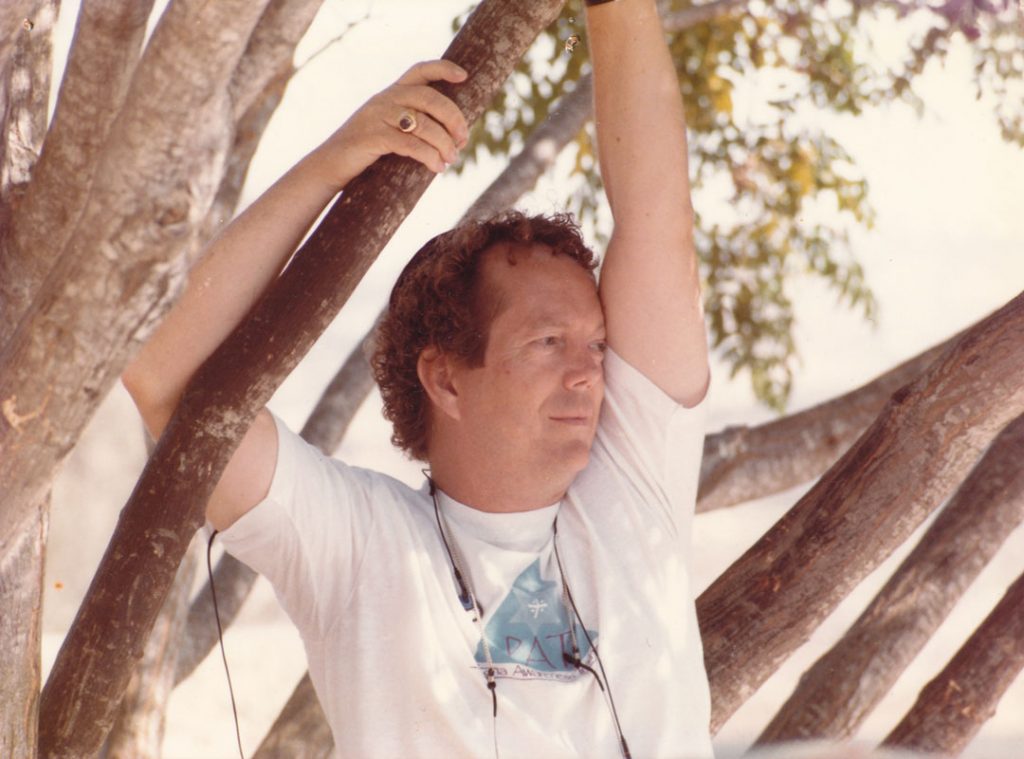
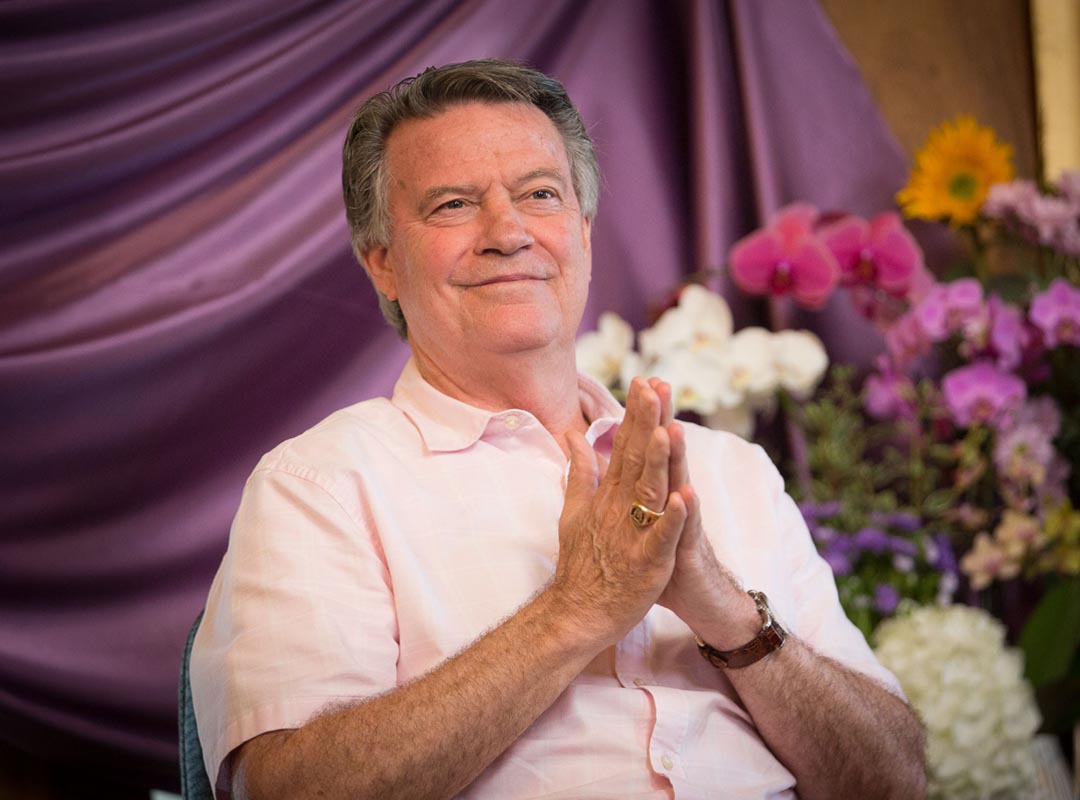
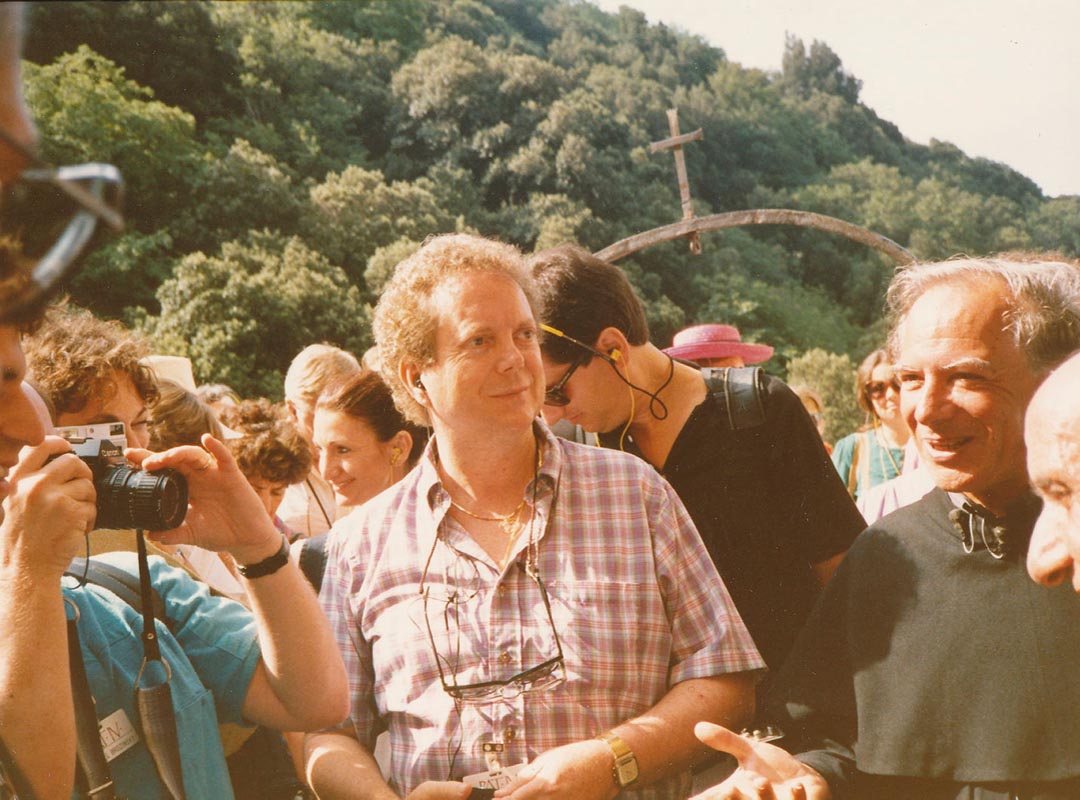
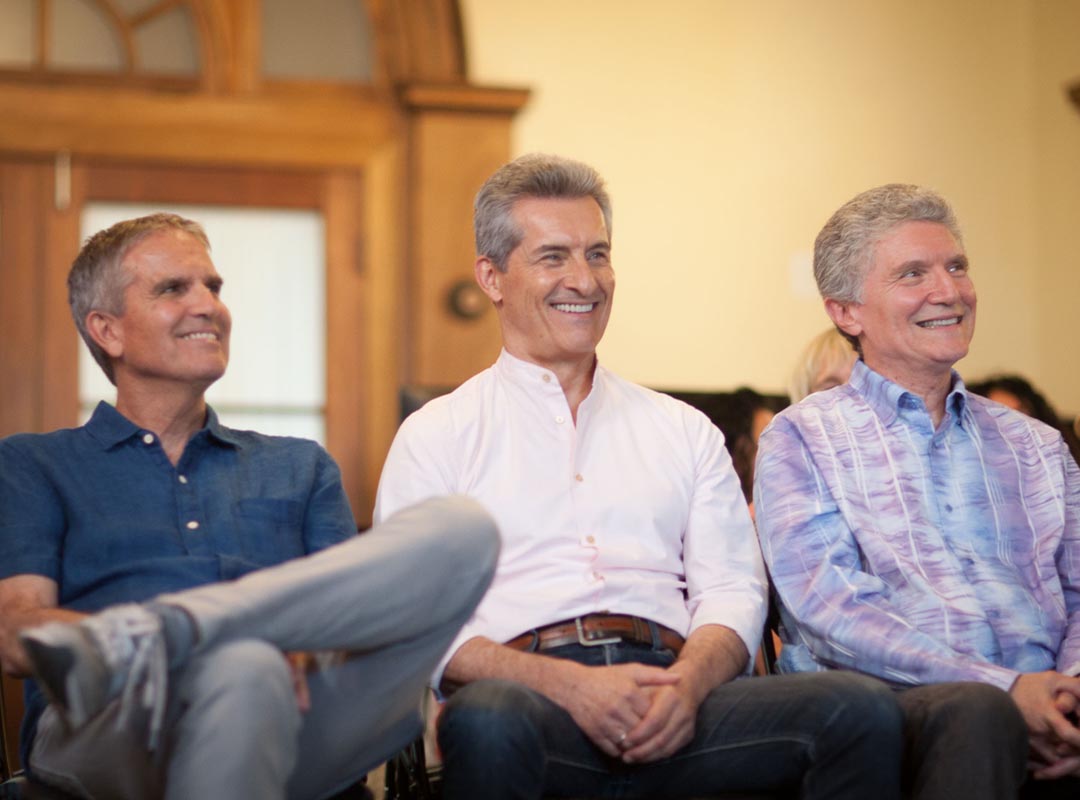
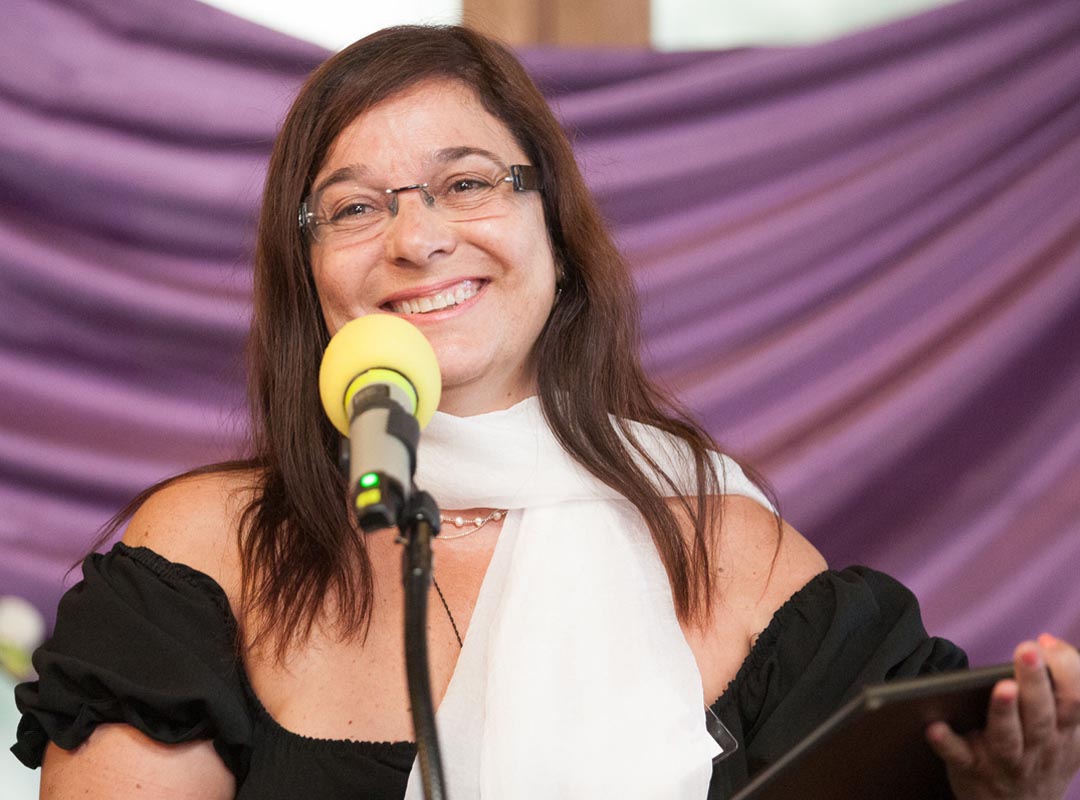
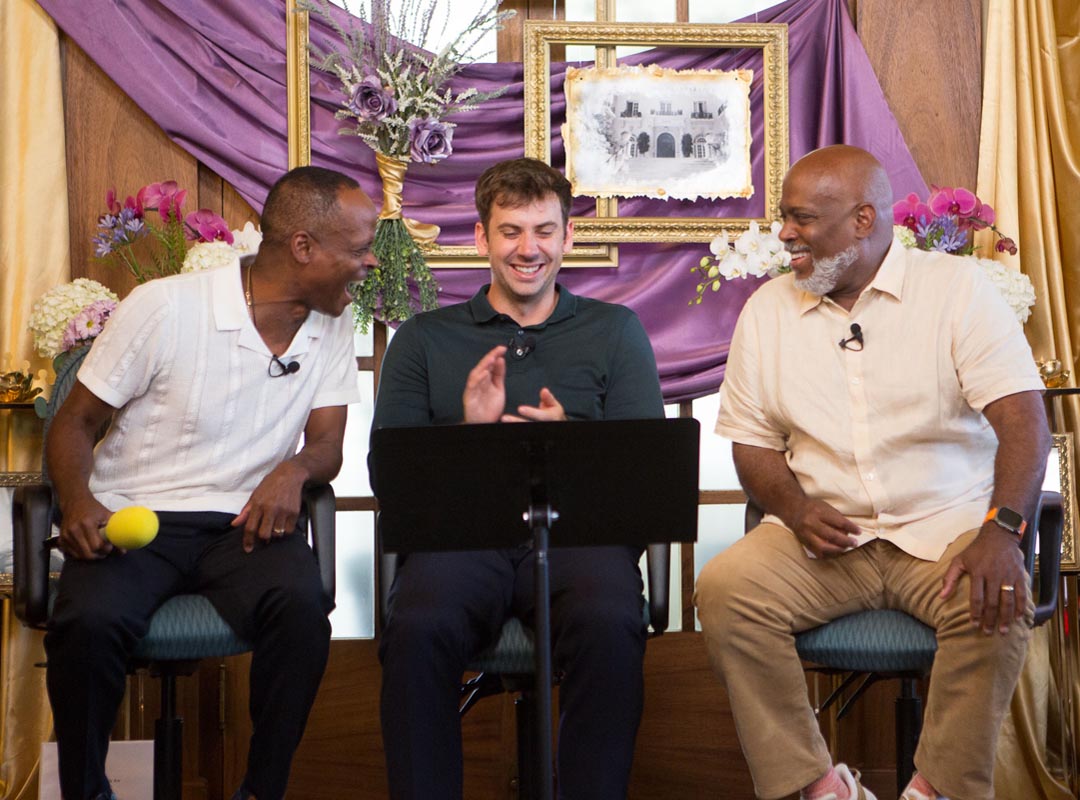
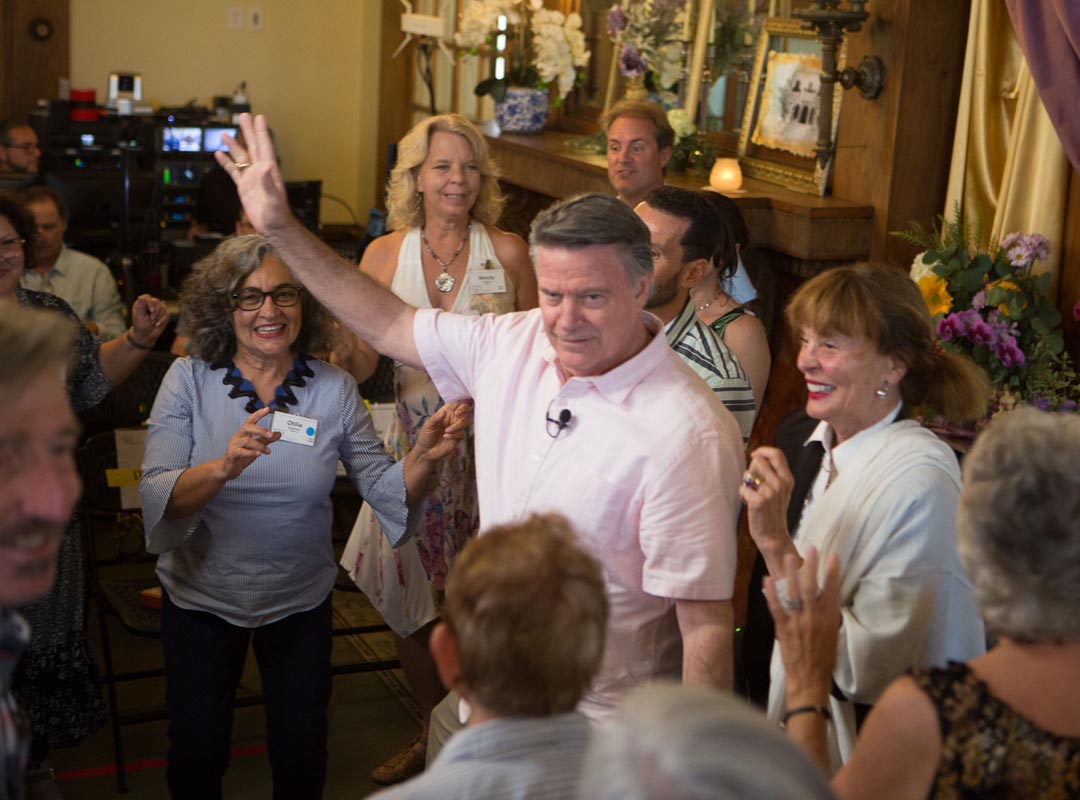
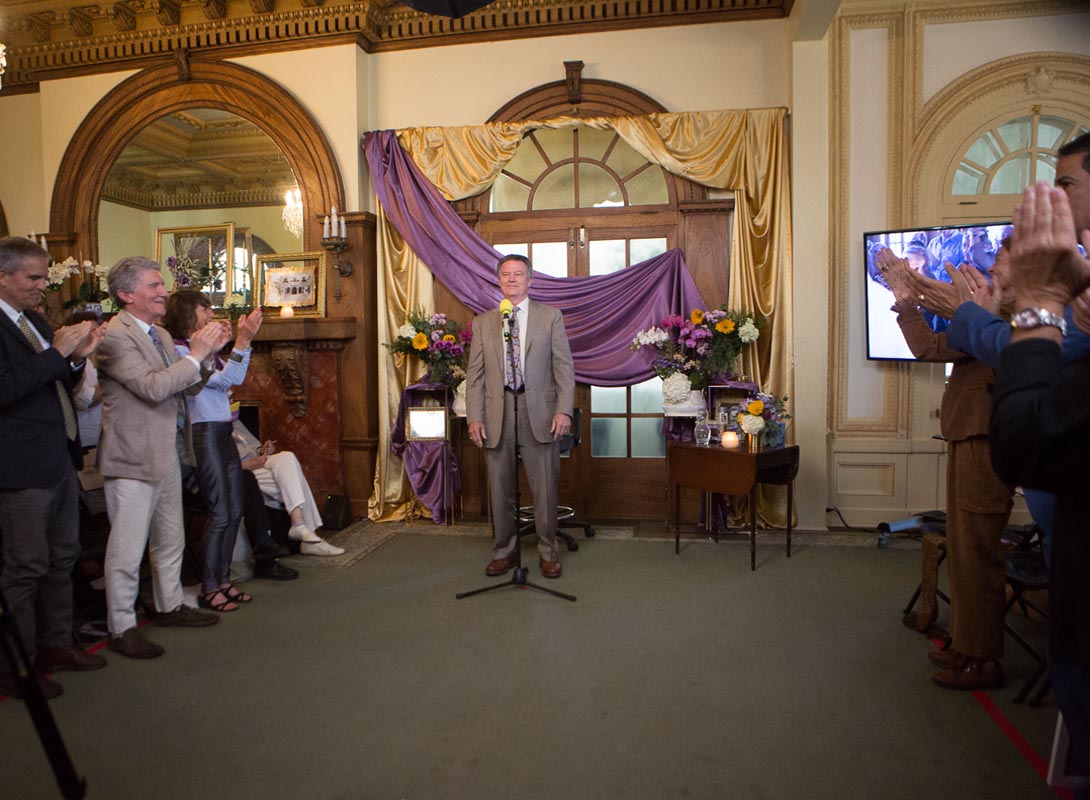

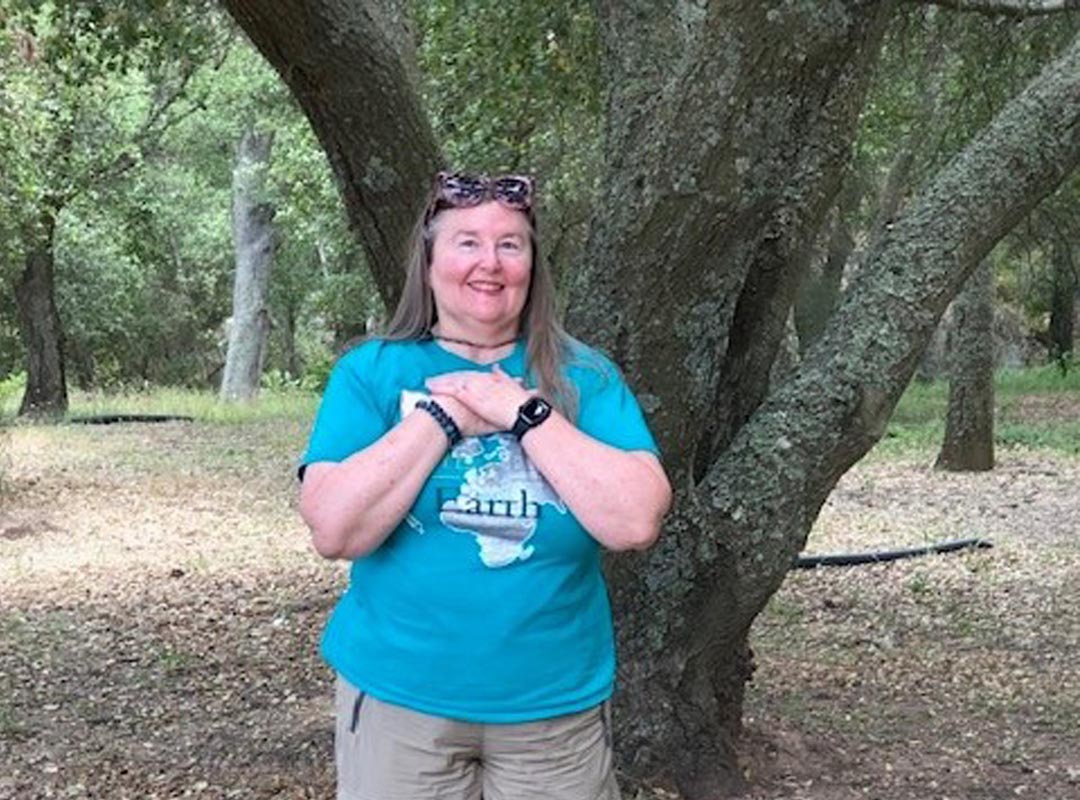
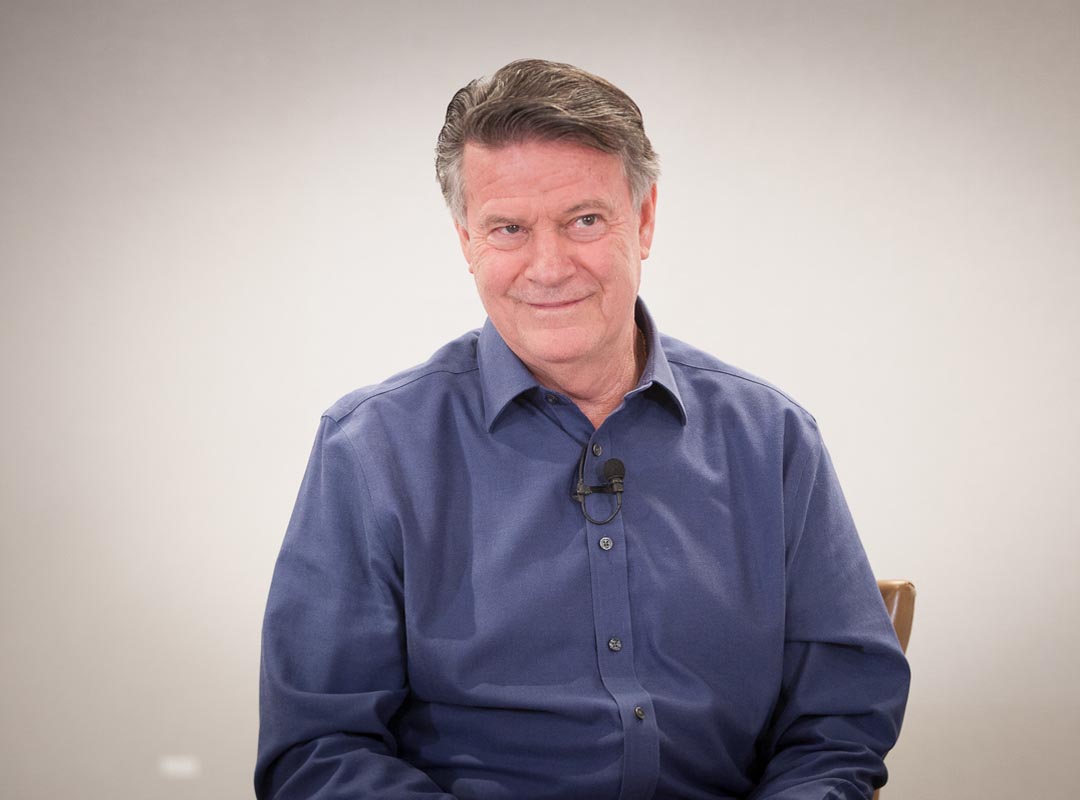
What a blessing JR